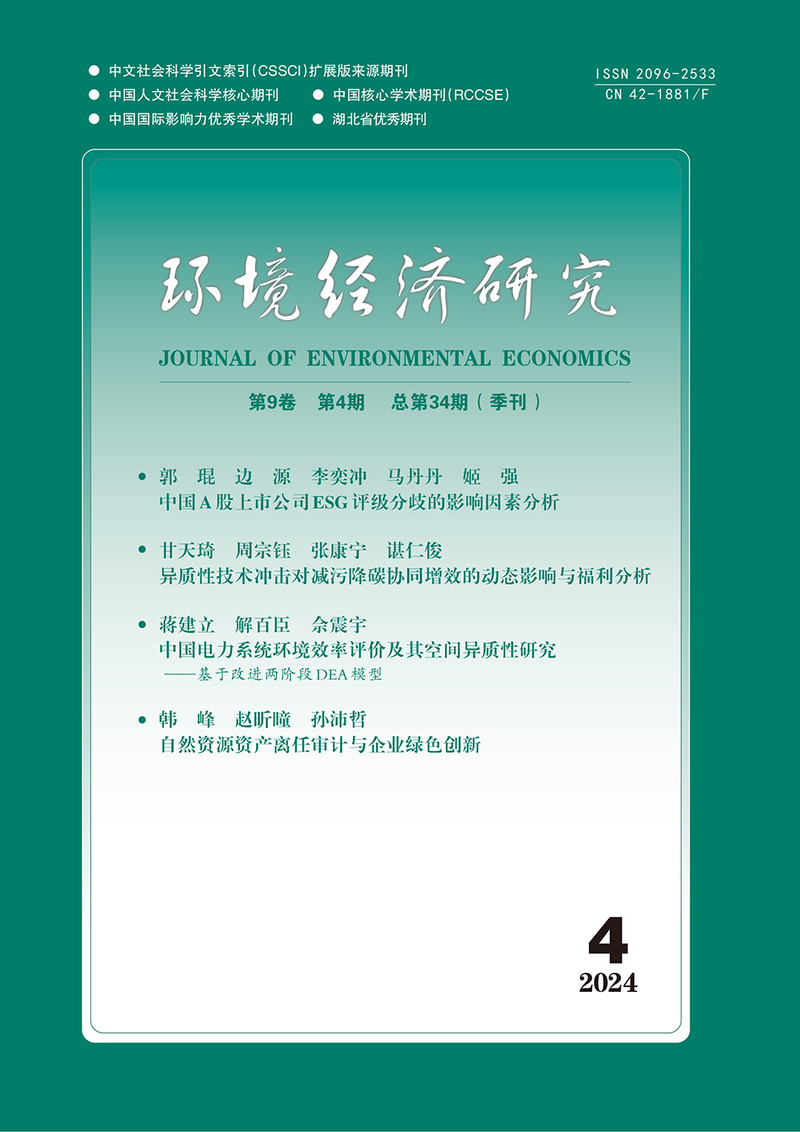摘要:在全面推进“五位一体”总体布局的战略目标现实背景下,研究环境规制政策对企业盈利能力的影响具有重要的现实意义。本文基于中国工业企业数据库,以二氧化硫排污权交易试点政策作为准自然实验,采用双重差分法来研究环境规制政策对企业盈利能力的影响。研究发现:二氧化硫排污权交易政策能够显著促进企业盈利能力提升,主要通过提高全要素生产率和促进技术创新两种机制影响企业盈利能力。另外,二氧化硫排污权交易政策对企业成本加成率的影响在非国有企业、出口企业和高级别城市中的作用较为明显。本文的研究具有较强的政策含义:一是市场激励型的环境规制政策不是企业盈利能力降低的主要原因,应坚持实施市场激励型的环境规制政策;二是应充分考虑地区所有制结构、城市行政级别、以及企业是否为出口导向型等特征的差异,制定更具针对性的环境规制政策。
关键词:排污权交易试点;成本加成率;全要素生产率;技术创新;PSM-DID
Does Environmental Regulation Weaken the Profitability of Enterprises?
Lei Sheping, Sun Yingxue and Xi Jiancheng
Abstract: Based on the database of industrial enterprises in China, this paper uses the pilot policy of so2 emission trading started as quasi natural experiment, and uses the difference-in-difference method (DID) to study the impact of environmental regulation policies on the profitability of enterprises. The research finds that: the so2 emission trading policy can significantly promote the the profitability of enterprises. There are two main mechanisms that affect the Profitability of Enterprises: the total factor productivity mechanism and the technological innovation mechanism. In addition, the impact of so2 emission trading policy on the markups of enterprises is more obvious in non state owned enterprises, export enterprises and high-level cities. The research of this paper has strong policy meanings: on one hand, the market incentive environmental regulation policy is not the main reason for the decrease of the profitability of enterprises, and the environmental regulation policy of market incentive type should be implemented; on the other hand, the differences of regional ownership structure, urban administrative level and whether the enterprise is export oriented should be fully considered to formulate more targeted environmental regulation policies.
Keywords: Emission Trading Pilot Policy; Markups; Total Factor Productivity; Technological Innovation; PSM-DID
基金项目:本文系教育部人文社会科学青年项目基金“政府的数字化转型对产业政策实施效果的影响测度和优化策略研究”(20YJCZH181)、陕西省社会科学基金项目“陕西自由贸易试验区建设促进产业结构优化升级的体制机制创新研究”(2019D03)、陕西省创新能力支撑计划“陕西重点生态功能区生态文明建设评价及优化研究”(2020KRM176)的阶段性成果。
